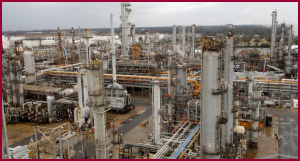
“Total failed repeatedly to adhere to obligations they willingly took on when they settled with the United States in 2007.”
Total Petrochemical USA will pay an $8.75 million fine for failing to comply with the terms of a 2007 settlement with the United States that resolved alleged violations of the Clean Air Act at its Port Arthur, Texas, refinery.
The 2007 settlement required that Total pay a $2.9 million penalty and make upgrades to its facility to reduce emissions of harmful air pollution. This settlement also required that Total upgrade leak detection and repair practices and implement programs to minimize flaring, which can result in emissions of gases that can cause serious respiratory problems and exacerbate asthma.
Between 2007 and 2011, Total violated numerous requirements of the 2007 deal, including failing to comply with emissions limits for benzene, a harmful air pollutant linked to cancer. The company also failed to perform corrective actions or to analyze the cause of over 70 incidents involving emissions of hazardous gases through flaring. EPA discovered the violations through a review of the quarterly compliance reports required by the 2007 settlement.
“Total failed repeatedly to adhere to obligations they willingly took on when they settled with the United States in 2007. These are court-enforceable requirements for the protection of the health of their Texas neighbors, not simply the cost of doing business,” said Robert G. Dreher, Acting Assistant Attorney General for the Justice Department’s Environment and Natural Resources Division.
In addition to the penalty, today’s action extends the requirement that Total comply with a lower benzene emissions limit for an additional two years. The enhanced limit for benzene, which is 30% lower than the federal limit, was initially required by the 2007 settlement. In addition, Total must hire a third party to audit its compliance under the settlement and must implement a company task force to monitor its compliance.
Exposure to high concentrations of sulfur dioxide, a key pollutant emitted from refineries, can affect breathing and aggravate existing respiratory and cardiovascular disease, particularly in children and the elderly. SO2 is converted in the air into fine particulate matter, which can harm health through decreased lung function, aggravated asthma, and premature death in people with heart or lung disease. Chronic exposure to benzene, a volatile organic compound that EPA classifies as a carcinogen, can cause numerous health impacts, including leukemia and adverse reproductive effects in women.

